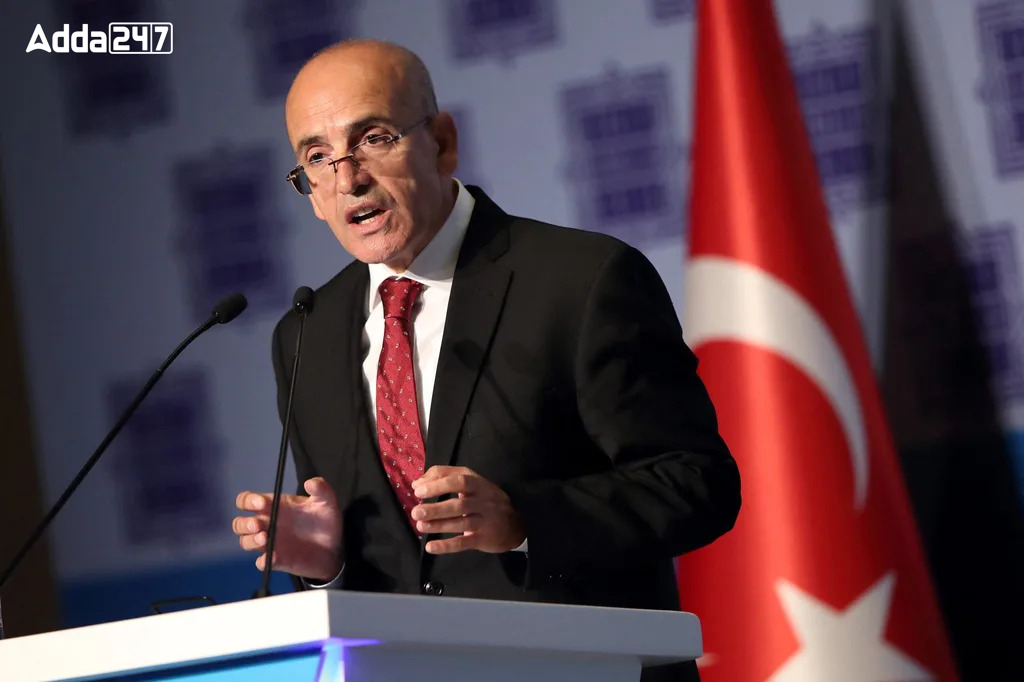Turkish Finance Minister Mehmet Simsek announced that Turkey has been removed from the FATF ‘grey list’ after recent evaluations of the country’s progress on money laundering and terrorist financing. The decision, declared at the FATF plenary meeting in Singapore, marks a significant milestone for Turkey, which had been placed on the grey list in 2021.
Announcement and Immediate Impacts
Turkish Finance Minister Mehmet Simsek proclaimed the success on the social media platform X, celebrating Turkey’s removal from the “grey list.” The FATF’s decision came following a thorough assessment of Turkey’s improvements in financial regulations and anti-money laundering measures.
Reasons for Grey Listing
In 2021, Turkey was downgraded to the grey list due to concerns over money laundering and terrorist financing. Criticisms included Turkey’s support for terrorist groups, such as Hamas, and inadequate supervision of various sectors susceptible to illicit financial activities.
Key Reforms and Legislative Actions
The FATF acknowledged Turkey’s significant reforms, particularly in the regulation of cryptocurrency. The Turkish Parliament recently approved legislation increasing oversight of the crypto market, ensuring stringent management and operational standards. This move was pivotal in addressing FATF’s concerns and contributed to Turkey’s removal from the grey list.
Criticisms and Ongoing Concerns
Despite Turkey’s removal from the grey list, there are ongoing criticisms. Some argue that Turkey still poses a risk as a hub for terror financing, with allegations of support for Hamas and involvement in financing arms transactions for groups like the Houthi rebels and Russia. Critics suggest that Turkey’s financial controls need further strengthening to ensure long-term compliance with international standards.
Economic Implications
Turkey’s removal from the grey list is expected to enhance foreign investor confidence and potentially boost the Turkish lira and assets. The move comes at a crucial time as Turkey battles soaring inflation and a cost-of-living crisis. Improved international standing could facilitate better economic conditions and investor relations.
Financial Action Task Force (FATF) : Key points
- Establishment: 1989
- Headquarters: Paris, France
- Members: 39 members, including major countries and regional organizations
- Purpose: To develop policies and standards to combat money laundering, terrorist financing, and other related threats to the integrity of the international financial system
-
Functions:
- Sets international standards (FATF Recommendations)
- Conducts peer reviews of member countries (Mutual Evaluations)
- Identifies high-risk and non-cooperative jurisdictions (grey list and black list)
- Provides guidance and best practices
- Grey List: Countries under increased monitoring for deficiencies in combating money laundering and terrorist financing
- Black List: High-risk jurisdictions with significant strategic deficiencies
- Meetings: Plenary meetings three times a year to review and update standards and assess member compliance
Key Points
Impact: Influences global financial policies and practices, impacting international banking and investment
Membership Requirements: Countries must implement FATF standards and undergo periodic evaluations
Key Publications: FATF Recommendations, Mutual Evaluation Reports, Guidance Documents




 India Holds Spot as No. 2 Buyer of Russi...
India Holds Spot as No. 2 Buyer of Russi...
 PM Modi’s Historic Israel Visit: First I...
PM Modi’s Historic Israel Visit: First I...
 India Drops Most Favoured Nation Status ...
India Drops Most Favoured Nation Status ...








